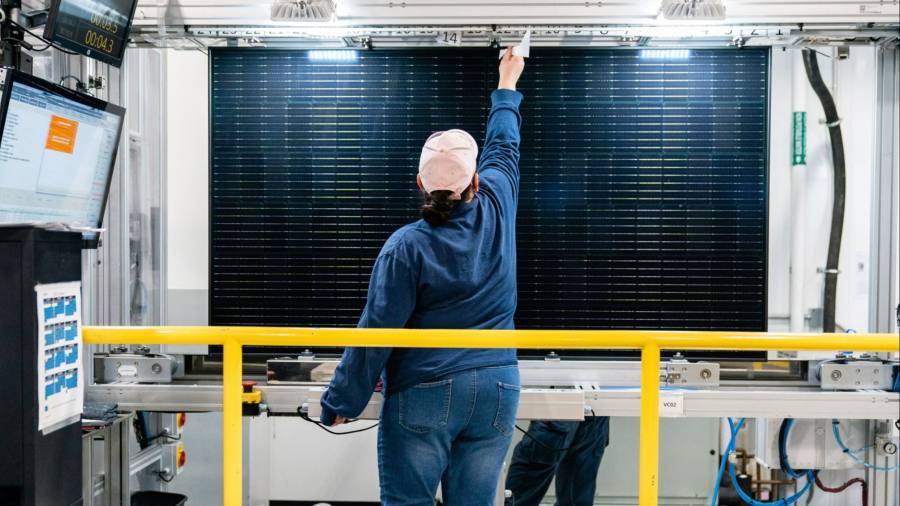The US’s flagship green technology legislation breaches global trade agreements, risks a global “race to the bottom” on clean energy incentives, and could lead to retaliation, Brussels has claimed.
In its first formal response on the Inflation Reduction Act, EU documents seen by the Financial Times state that the $369bn package of subsidies and tax credits for American producers and consumers contravenes World Trade Organization treaties that say countries such as the US cannot discriminate against imported products.
Officials in Brussels also believe the package, passed in August, could trigger retaliation from the EU and other US allies.
The European Commission comments sent to the US Treasury state that five measures offering tax credits and subsidies “contain provisions with clearly discriminatory domestic content requirements, in breach of WTO rules”.
“If implemented in its current form, the Act risks causing not only economic damage to both the US and its closest trading partners, resulting in inefficiencies and market distortions, but could also trigger a harmful global subsidy race to the bottom on key technologies and inputs for the green transition,” the document, which is due to be published on the US Treasury’s website on Monday, said. “Moreover it risks creating tensions that could lead to reciprocal or retaliatory measures.”
The response highlights concern in European capitals that the act will hamper investment in green technologies throughout the EU and heightens the risk of a transatlantic trade war at a time of geopolitical uncertainty.
A subsidy race has already begun, with Canada saying last week that it would introduce tax credits for green investment to avoid companies being lured to the US. Japan and South Korea have also complained publicly about the IRA.
The EU wants changes to nine of the provisions in the legislation, which restrict subsidies and tax credits to products made in the US, or companies operating there. The incentives affect manufacturing and investing in products including solar panels, wind turbines and clean hydrogen.
Consumer tax breaks, which offer a $7,500 subsidy for purchases of electric vehicles, are treated slightly differently, with Canadian and Mexican products also qualifying.
The commission said the US must “give EU companies the same treatment as other US trading partners”.
While the EU welcomed the Biden administration’s commitment to fighting climate change it said “the green transition is not something to be achieved at the expense of others”. US companies would gain an advantage that would enable them to outcompete others, turning the fight against climate change “into a zero-sum game”.
It also warned that retaliation “threatens the multilateral trading system at a time when its value is more important than ever for both American and European businesses”.
While some EU member states, such as France, are already calling for retaliation, EU trade commissioner Valdis Dombrovskis has so far preferred negotiations.
A task force of senior US and commission officials met for the first time last week. The EU response said it “hopes to find constructive and amicable solutions”.
“The task force is a clear, senior level commitment by the US to address the serious concerns raised by the EU in relation to the Act,” it added.
The US Treasury is responsible for implementing the IRA, but it has not yet stated how much it is possible to change without asking Congress to rewrite sections. Analysts believe that Congress is unlikely to do so as the Act was a delicate compromise that only passed the Senate thanks to vice-president Kamala Harris’ casting vote.
US trade representative Katherine Tai defended the subsidies in an interview with the FT last week, but said she was hopeful differences with the EU could be resolved.



























.jpg)

































![Chase Matthew – HEART HALF EMPTY (FEAT. LAUREN ALAINA) [Official Music Video] Chase Matthew – HEART HALF EMPTY (FEAT. LAUREN ALAINA) [Official Music Video]](https://i.ytimg.com/vi/pu1W4ZyQKbM/maxresdefault.jpg)

















